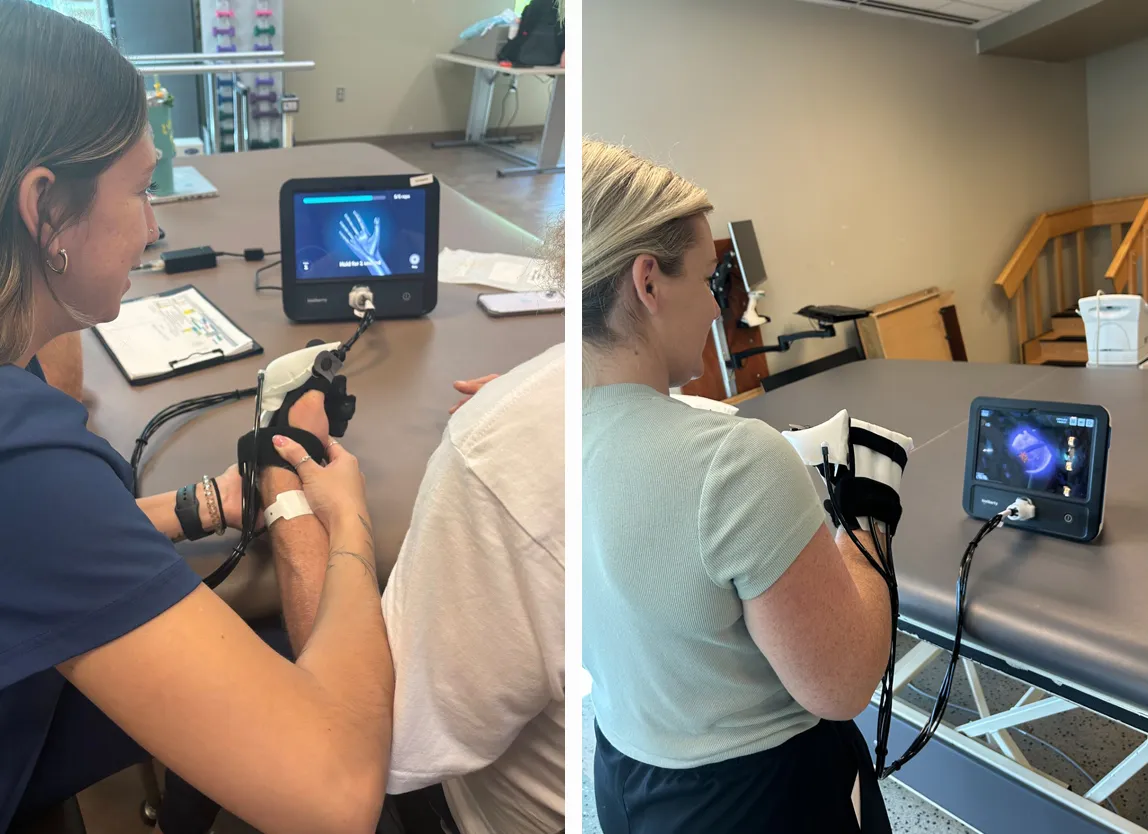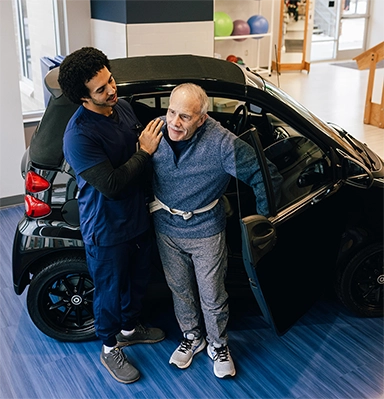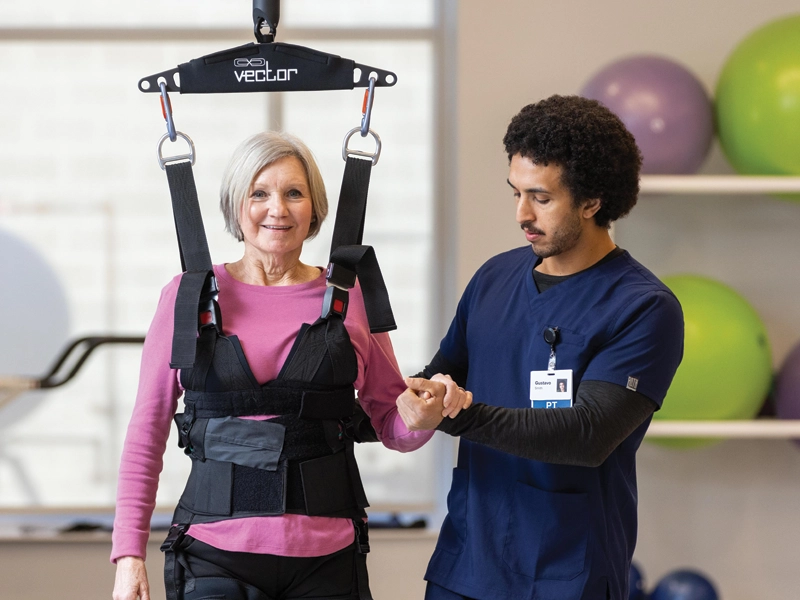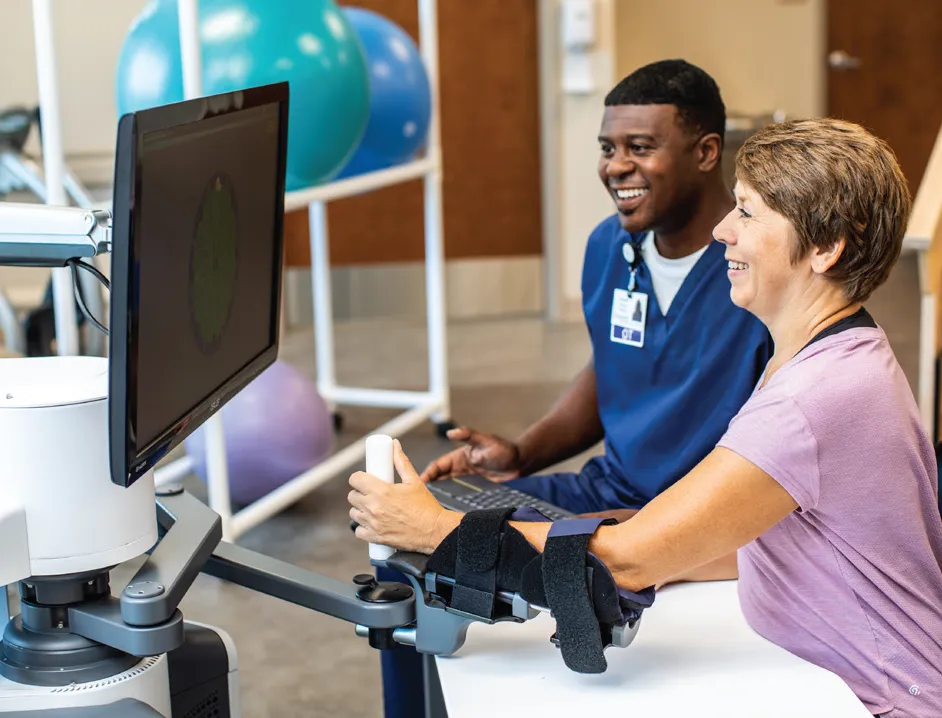Therapeutic Technology
Our hospital provides such leading-edge technology – as well as therapists trained to use it best – to ensure our patients are positioned to recover as quickly as possible.
Innovative Solutions for Superior Outcomes
New technology continues to push the boundaries of what once was considered full recovery from certain injuries or conditions. Today, for instance, top inpatient rehabilitation facilities deploy robotic tools that give stroke patients the ability to use their upper extremities again or help spinal cord injury patients with early ambulation.
Our hospital provides such leading-edge technology – as well as therapists trained to use it best – to ensure our patients are positioned to recover as quickly as possible.
Here are some examples of some of the industry’s best technology deployed at our hospital:
Lifeglov
Lifeglov, which is designed to restore independence and regain maximum mobility, assists with hand and arm impairments due to stroke or other neurological illnesses. Powered by air and accompanied by a digital therapy platform, Lifeglov slowly extends the users’ fingers and opens their hands. Wearing the glove, patients engage in high-dose, repetitive task practice through interactive, game-based exercises — an approach designed to promote neuroplasticity and restore movement. Acting as both a passive and active device, it can either facilitate movement independently or provide assistance to complete specific motions, maximizing each patient’s recovery potential.

Smart Car
Our Smart Car is fully integrated into our rehab gym, allowing our patients to learn and practice car transfer skills year-round at any time during a treatment session. Car transfer training activities are essential to prepare our patients for community reintegration and setting them up for success when getting back to their daily activities.

Biodex Gait TrainerTM
Biodex Gait Trainer™ is a body-weight support system and gait training device that provides a safe environment for patients to participate in gait training over a treadmill or over ground. This system allows patients to begin gait training earlier in the rehabilitation process and at a lower level than would be feasible with any other assistive device available. The Biodex Gait Trainer system eliminates the fear of falling and/or loss of balance with standing and walking tasks and allows the therapist the ability to provide manual assistance to the legs and pelvis throughout the gait cycle to facilitate proper gait patterns.
Overhead Body Weight Support System
Our overhead body weight support system provides dynamic body weight support while patients practice walking, balance tasks, sit-to-stand transfers, open and closed-chain strengthening exercises, and even steps. This system is mounted to an overhead track, allowing for use within the parallel bars or outside of the bars when introducing an assistive device during gait training progression. The body weight support system provides a safe environment for patients to begin standing, transfer, and gait training.

InMotion
The BIONIK InMotionARM™ Robot is often used with many patients who suffer from weakness in their upper extremities after a stroke. The ARM Robot helps patients utilize their strength to complete hundreds of repetitions in a fraction of the time of traditional exercise. Repetition is one of the most important factors when considering neuroplasticity and the brain’s ability to repair and relearn movements following a stroke. This evidence-based neurorehabilitation technology quietly monitors the patient’s movements during therapy while gently assisting where needed to help them complete various motor therapy activities.

EksoGTTM
The EksoGT™ exoskeletal unit assists patients with early ambulation following a stroke or spinal cord injury. Ekso is a robotic exoskeleton that can be fitted to most patients to allow them to stand and ambulate early in the rehab process, which is key to their long-term prognosis. Clinical evidence indicates that gait training in the Ekso improves patients’ balance, walking distance, and gait speed outside of the device at discharge compared to admission.



